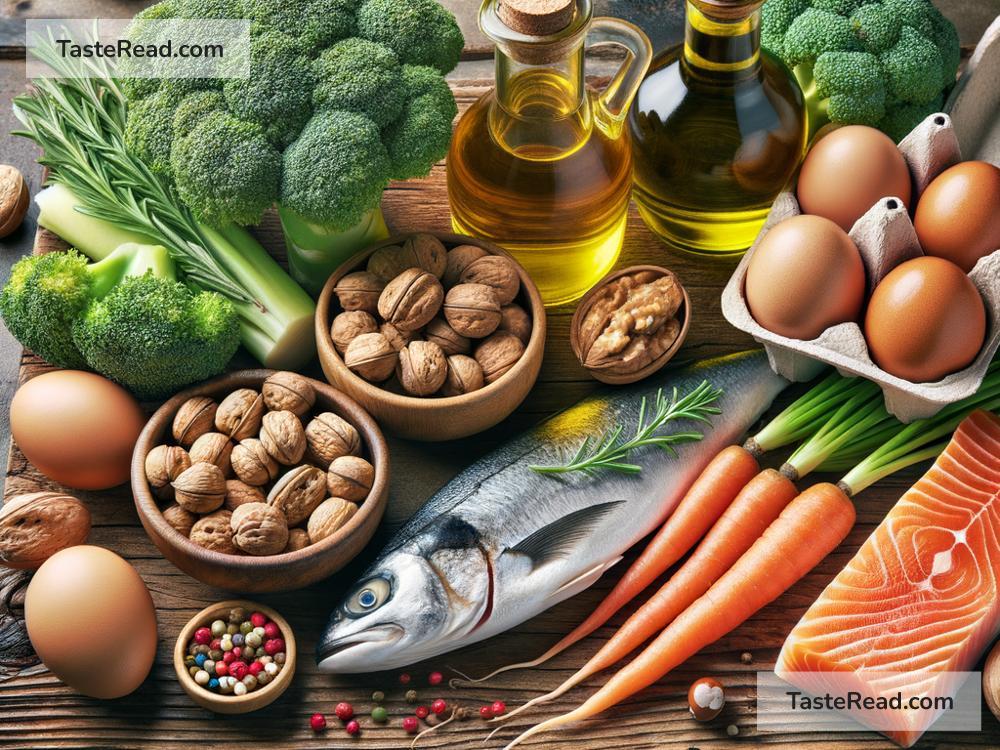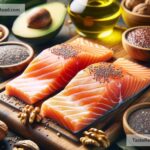Understanding the Role of Fat-Soluble Vitamins
Vitamins are essential nutrients that keep our bodies healthy and working properly. They help everything from growing strong bones to fighting off illnesses. But did you know that there are two main types of vitamins – water-soluble and fat-soluble? Today, we’re going to focus on fat-soluble vitamins, explain why they’re important, where to find them, and how they work in the body. Don’t worry if you’re not a science whiz — we’ll keep it simple!
What Are Fat-Soluble Vitamins?
Fat-soluble vitamins are a group of vitamins that dissolve in fat, rather than water. This means they’re absorbed by the body with the help of dietary fat. Once absorbed, these vitamins are stored in the liver and fatty tissues so your body can use them when needed. This storage ability makes fat-soluble vitamins different from water-soluble ones, which aren’t stored and need to be replenished more regularly through your diet.
The four fat-soluble vitamins are:
- Vitamin A
- Vitamin D
- Vitamin E
- Vitamin K
Let’s take a closer look at what each of these vitamins does, why they’re important, and where you can find them.
Vitamin A: The Sight Saver
Vitamin A is often called the “vision vitamin” because it plays a crucial role in keeping your eyes healthy. It helps you see in low-light conditions (ever heard of night blindness?) and prevents damage to your vision over time. But Vitamin A doesn’t just help your eyes. It’s also important for your immune system, skin, and even the growth and repair of body tissues.
Where to Get Vitamin A:
You can find Vitamin A in foods like:
– Animal sources: Liver, eggs, dairy (milk, cheese).
– Plant sources: Brightly colored vegetables like carrots, sweet potatoes, and spinach. These contain beta-carotene, which your body can convert into Vitamin A.
Vitamin D: The Sunshine Vitamin
Vitamin D is famous for its connection to sunlight. When your skin is exposed to sunlight, your body can make its own Vitamin D. This vitamin is essential for strong bones because it helps the body absorb calcium and phosphorus — two minerals that build and maintain bones. Without enough Vitamin D, bones can become weak or brittle, leading to conditions like rickets in children or osteoporosis in adults. Vitamin D is also important for your immune system.
Where to Get Vitamin D:
You can get Vitamin D through:
– Sunlight: Spending time outside (even a little helps)!
– Food sources: Fatty fish like salmon, tuna, and mackerel; egg yolks; and fortified foods like milk, cereal, and orange juice.
– Supplements: If you don’t get enough Vitamin D from sunlight or food, supplements can help.
Vitamin E: The Body’s Antioxidant
Vitamin E is known as an antioxidant, which means it helps protect your cells from damage caused by free radicals. These free radicals are unstable molecules that can harm your cells and lead to aging or diseases like cancer. Vitamin E also supports your immune system and helps maintain healthy skin and eyes.
Where to Get Vitamin E:
You can find Vitamin E in foods like:
– Nuts and seeds: Almonds, sunflower seeds, hazelnuts.
– Vegetable oils: Sunflower, safflower, and wheat germ oil.
– Leafy greens: Spinach, broccoli.
Vitamin K: The Clotting Vitamin
Vitamin K is a bit of a superhero when it comes to helping your blood clot properly. Without it, even a small cut could bleed uncontrollably. Vitamin K is also key for maintaining strong bones and heart health.
Where to Get Vitamin K:
You can find Vitamin K in:
– Leafy greens: Kale, spinach, broccoli.
– Other veggies: Brussels sprouts, cabbage.
– Animal products: Some Vitamin K is found in meat, eggs, and dairy.
Why Balance Is Important
Since fat-soluble vitamins can be stored in the body, it’s possible to get too much of them, especially if you take supplements. Overloading on these vitamins can cause health problems because they build up over time. For example, too much Vitamin A can lead to headaches, blurred vision, or liver issues, while too much Vitamin D can result in kidney damage.
To stay healthy, focus on eating a well-rounded diet with plenty of fruits, vegetables, healthy fats, and lean protein. This approach usually provides the right amount of fat-soluble vitamins without needing supplements. Still, it’s always a good idea to talk to your doctor if you’re unsure.
Final Thoughts
Fat-soluble vitamins play an essential role in keeping your body healthy, strong, and ready to face the world. Whether it’s Vitamin A helping your eyes, Vitamin D strengthening your bones, Vitamin E protecting your cells, or Vitamin K assisting in blood clotting, these vitamins are small but mighty. By eating a balanced diet that includes foods rich in these vitamins, you can give your body the tools it needs to thrive.
So, next time you enjoy a salad with spinach or bask in the sunlight, remember the amazing job fat-soluble vitamins are doing to keep you healthy. They’re like tiny superheroes working behind the scenes — and you don’t even have to wear a cape!


